What Reading Practice Should You Do at Home
Learning to read starts kids on a lifelong learning journeying, but literacy is more than just understanding the words on a page. Reading fluency involves comprehension, speed, accurateness, and prosody (reading with expression). In that location are many ways to help kids develop reading fluency, both in and out of the classroom. Here are some of our favorites.
1. Start with a reading fluency anchor chart
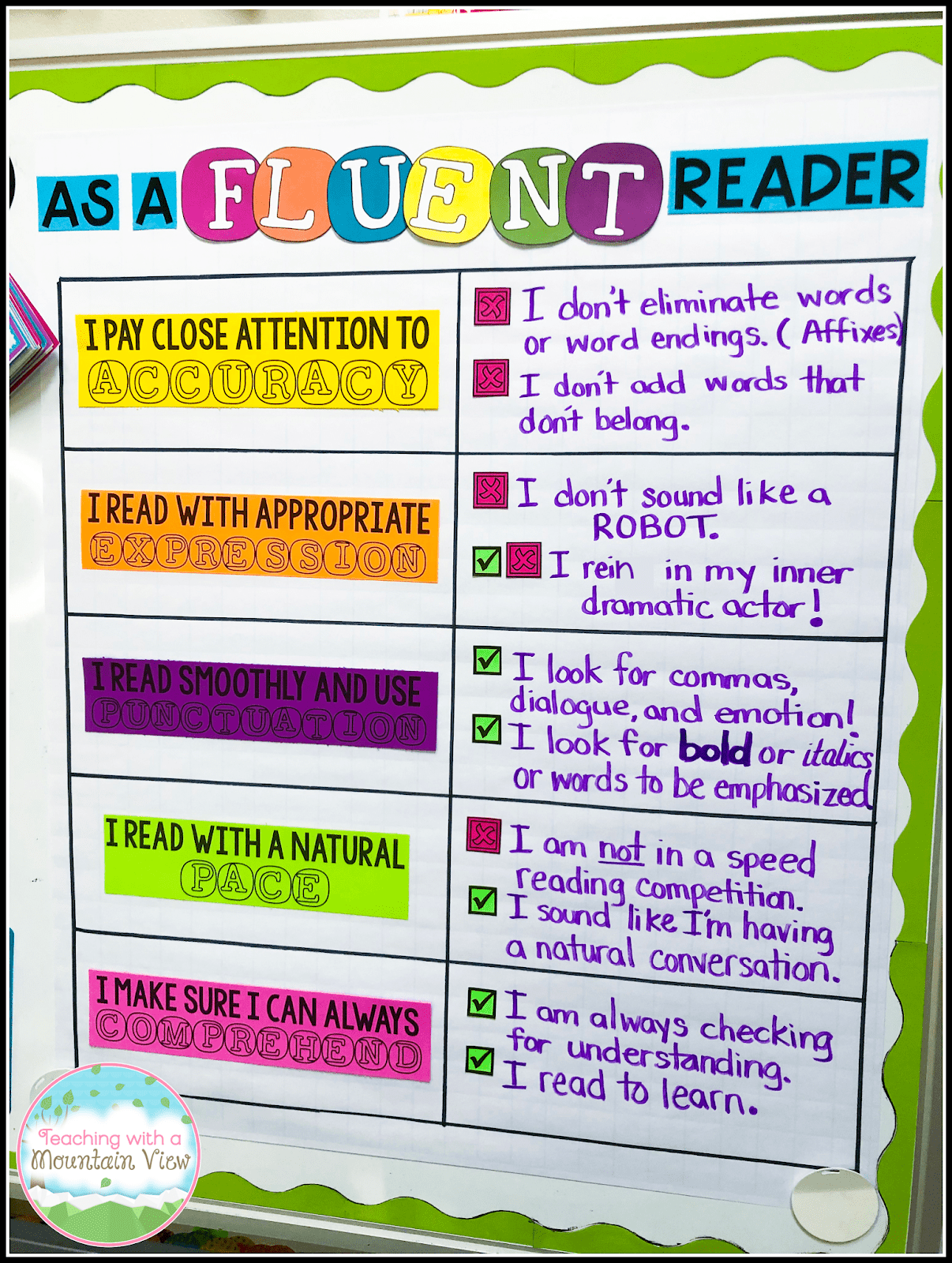
Introduce the basics of reading fluency with an anchor chart you can hang in the classroom. It'south a good reference for kids throughout the year. Here are 17 more than fluency charts to try.
Learn more: Teaching With a Mount View
2. Model fluency with read-alouds
Reading aloud to kids is important for so many reasons, but one of the best is that it teaches kids what fluency sounds like. Adults can model expression, phrasing, pace, and so much more when they read to kids. Try some of our favorite read alouds, or use the free website Storyline Online every bit part of your reading center activities.
3. Hang reading fluency posters
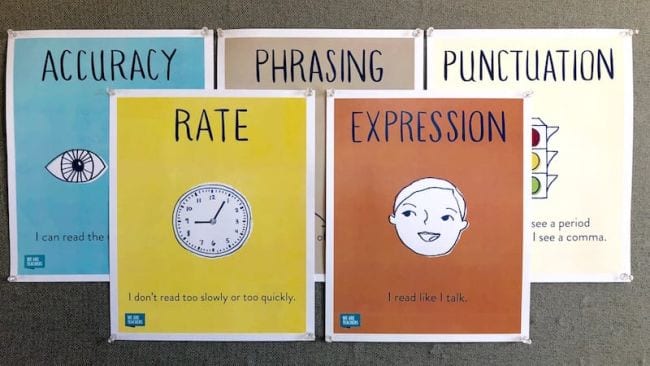
Post these in your classroom reading center to remind kids what reading fluency really means. They're simple simply effective. Get your gratuitous set here.
4. Try sentence trees
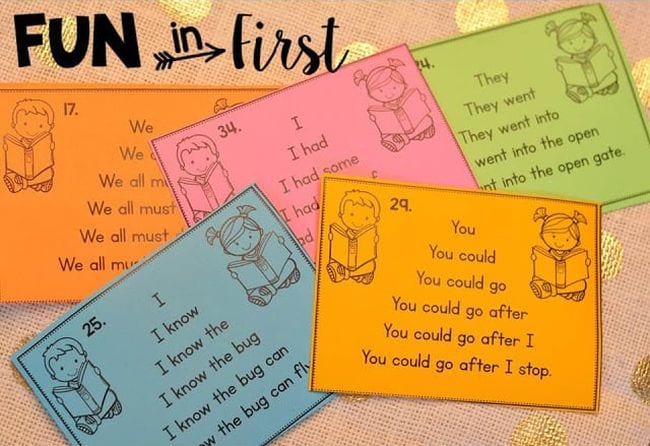
Sentence trees are terrific for building fluency in younger readers. They allow kids to focus on each word, improving accuracy and speed along the fashion.
Learn more: Fun in Kickoff
5. Put together poems and nursery rhymes
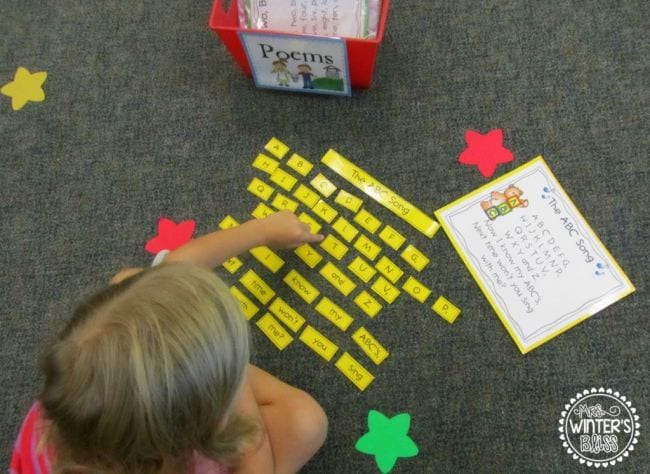
Kids oft memorize plant nursery rhymes long before they acquire to read. By breaking those rhymes apart into individual words and putting them back together again, kids see how words build into sentences and stories in a natural flow.
Learn more: Mrs. Winter'south Bliss
half-dozen. Use line tracking and give-and-take pointers
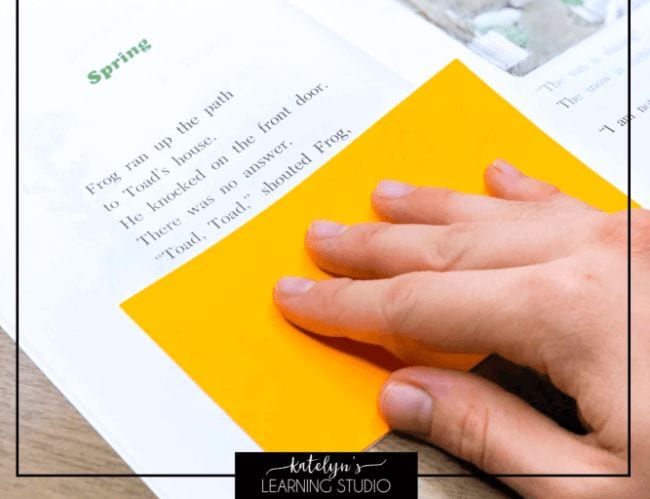
For some kids, focus is a challenge. Their eyes wander effectually the page, and they have trouble developing the speed needed for fluency. Utilise another piece of paper to assist them focus on the line they're reading, or try pointing to the words one by i.
Learn more: Katelyn's Learning Studio
seven. Read and reread … and reread
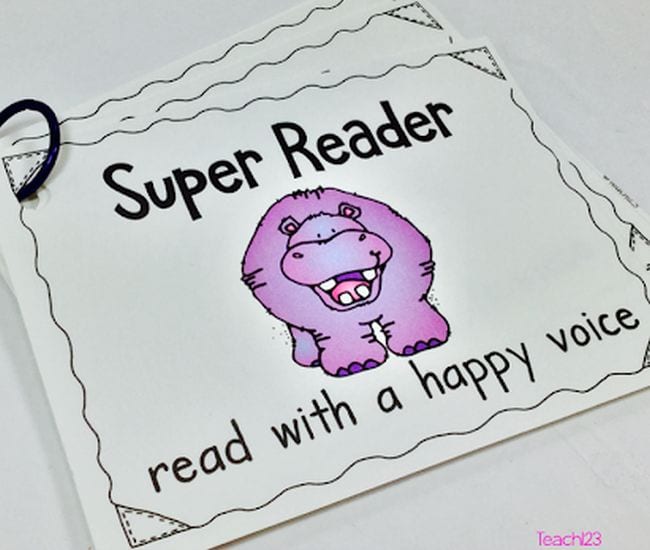
Fluency involves lots and lots of reading and rereading. When kids read a passage over and over again, they build up their speed and accuracy automatically. Ane fun way to work on expression is to try rereading with different voices.
Larn more: Teach123
viii. Add a timer to rereading
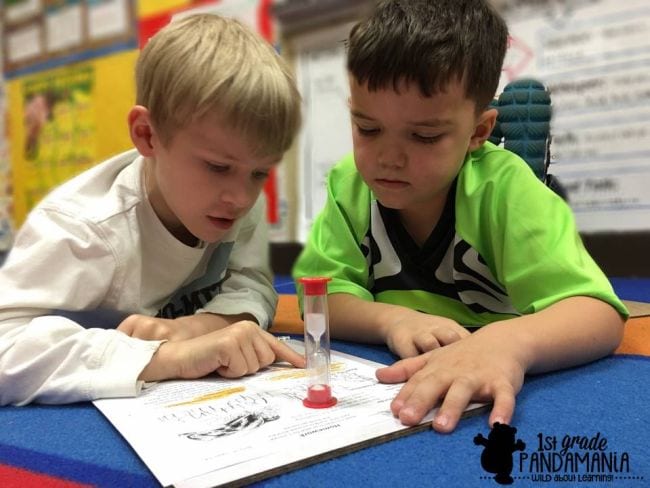
Combine repeated reading with a timer. Students read a passage for one infinitesimal, working to increase the number of words they read correctly each fourth dimension. This is a squeamish tool for working on speed and accurateness.
Learn more: 1st Class Pandamania
9. Track student progress
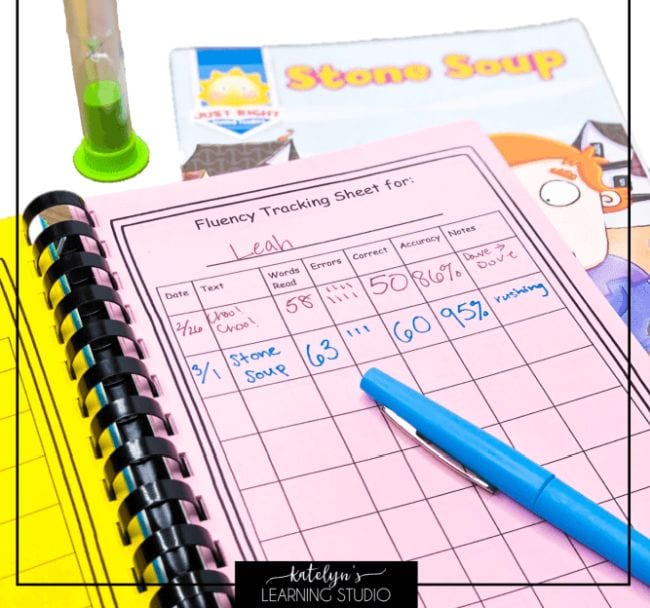
While you lot don't desire to overemphasize numbers, tracking a educatee's fluency is helpful to both you and them. Parents can help with this one at home, too.
Learn more: Katelyn'south Learning Studio
x. Work on those sight words
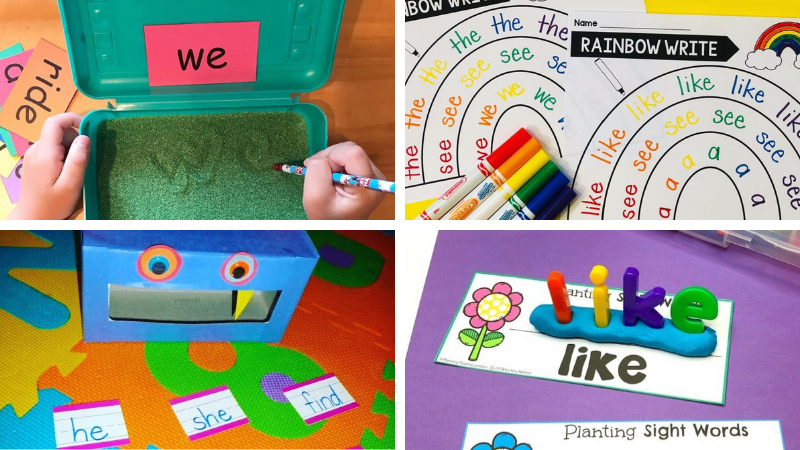
One of reasons elementary readers focus and then much on sight words is that they help to build reading fluency. Discover a roundup of all our favorite sight discussion activities here.
11. Look to punctuation for expression cues
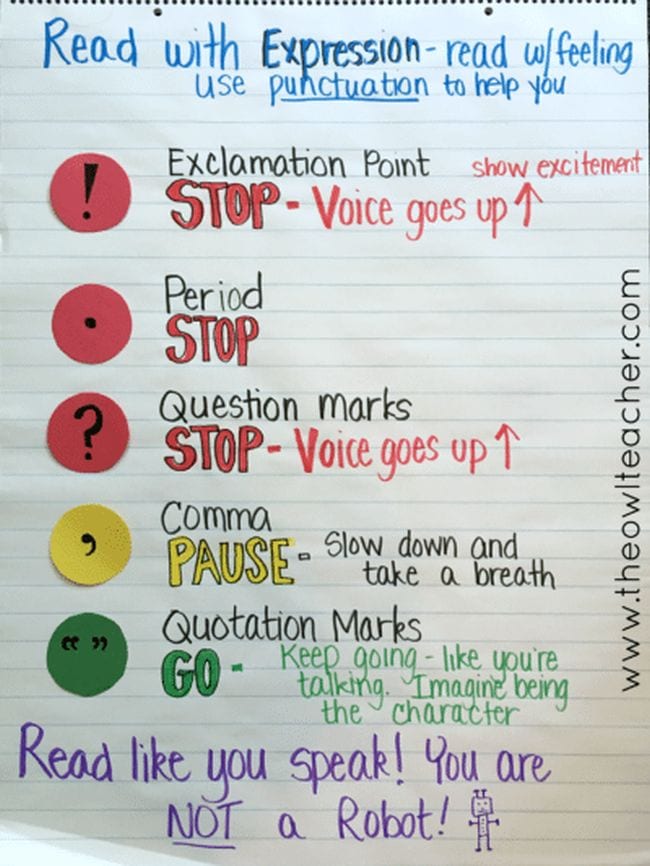
Punctuation makes passages easier to read, but it also gives a reader cues on proper expression. Help your kids recognize what each punctuation marker sounds like when reading fluently.
Learn more: The Owl Teacher
12. Answer the fluency phone
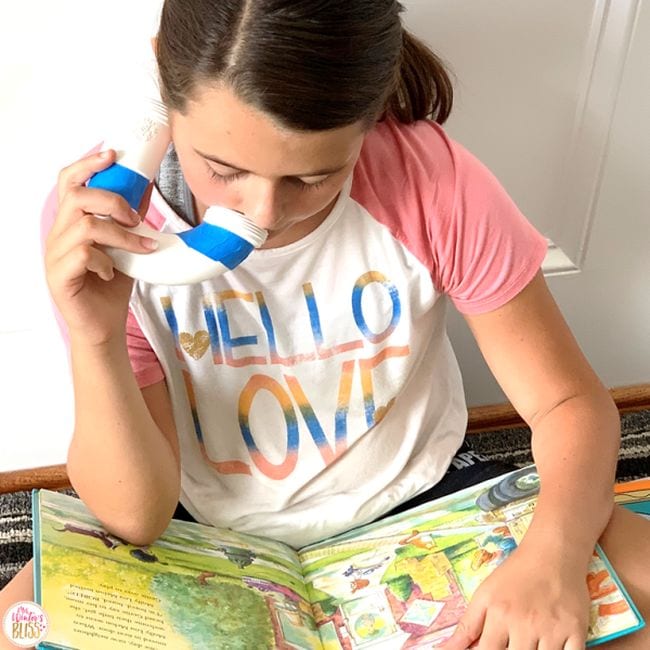
These are such a fun tool for helping kids really hear themselves read! They're neat for busy classrooms and reading centers. Kids talk softly into the telephone, and the audio is amplified in their ear. You tin buy fluency phones, or make them yourself from PVC pipe.
Learn more: Mrs. Wintertime'south Bliss
xiii. Read with partners

Whether kids are reading together or you pair an adult helper with a student, taking turns reading is a terrific way to get more fluent. When 1 reader is stronger, have them read the passage kickoff and accept the other reader echo it back.
Learn more: The Measured Mom
fourteen. Go a reading buddy
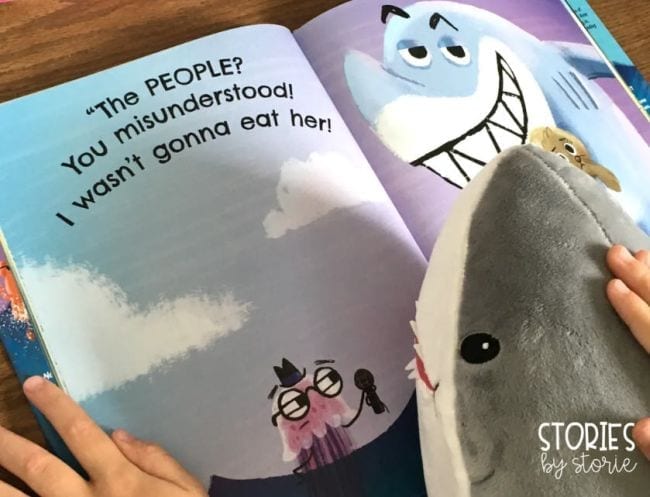
Shy kids volition especially appreciate the chance to practice reading out loud to a stuffed animal pal. Encourage them to read as if their fuzzy friend tin can hear everything they're saying.
Learn more: Stories by Storie
fifteen. Give kids a reading fluency rubric
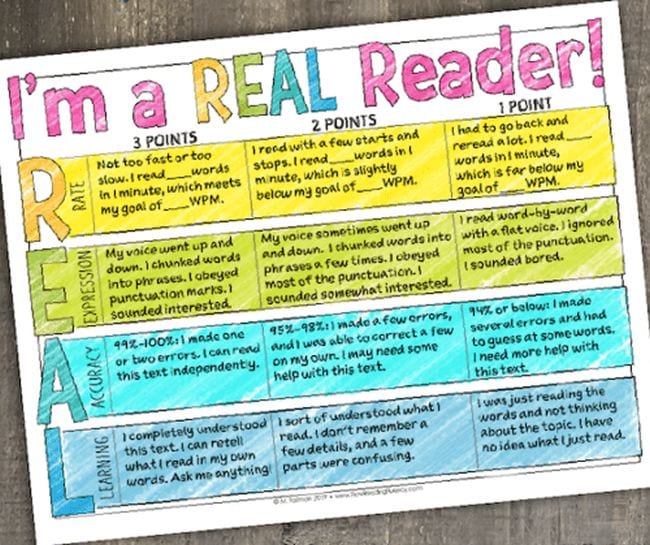
Utilize this gratis printable rubric when evaluating students' reading fluency, or ship information technology home for parents. Kids can even use it to self-evaluate!
Larn more than: Teacher Thrive
xvi. Apply a fluency bookmark
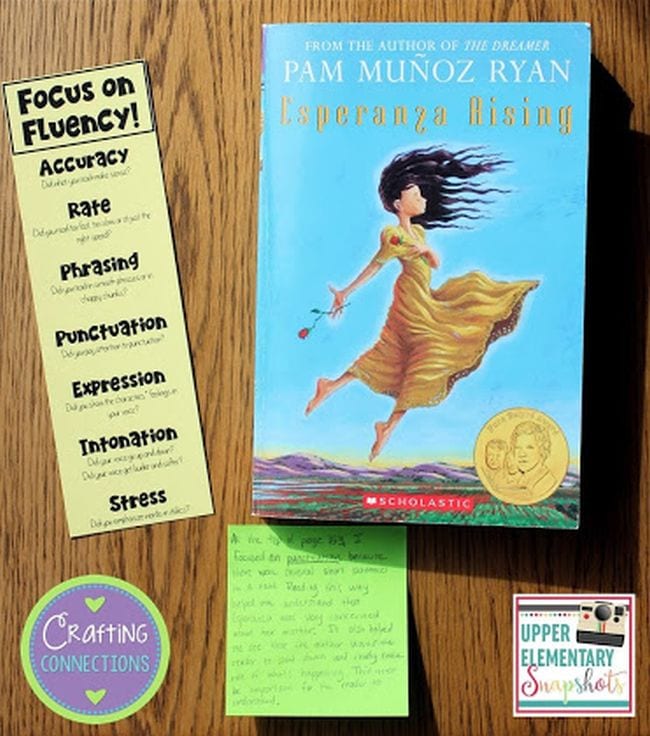
A handy bookmark keeps fluency strategies front and center when kids read. We love this thought for kids who are gear up for chapter books.
Learn more: Upper Simple Snapshots
17. Introduce the concept of scooping phrases
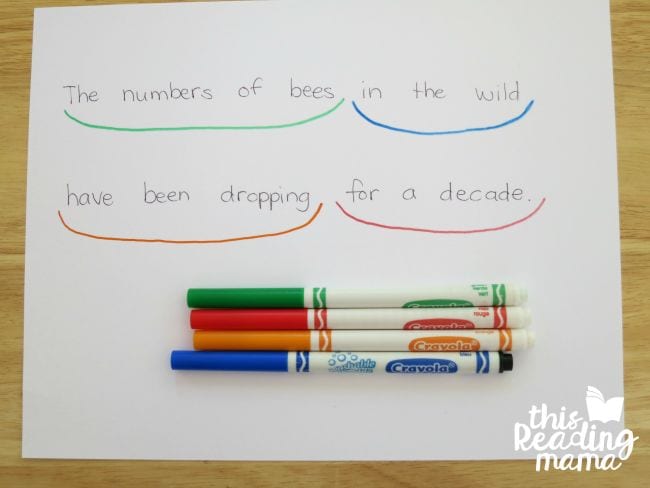
Pointing to words is skilful for building speed and accuracy, simply scooping phrases takes things to the side by side level. This practice is a not bad help for developing expression and comprehension.
Acquire more: This Reading Mama
xviii. Hold a schoolhouse-wide fluency challenge

Make literacy and reading fluency something the whole school focuses on. Have PE teachers post sight words for kids to read out when they run past. Invite cafeteria workers to join you for storytime. Rail fluency and celebrate milestones with individual and whole school rewards! Learn more than most property a school-wide fluency challenge hither.
Need more reading fluency help? Attempt these 27 Awesome Free or Depression-Cost Websites for Practicing Reading.
Plus, 25 Incredible Reading Apps for Kids.
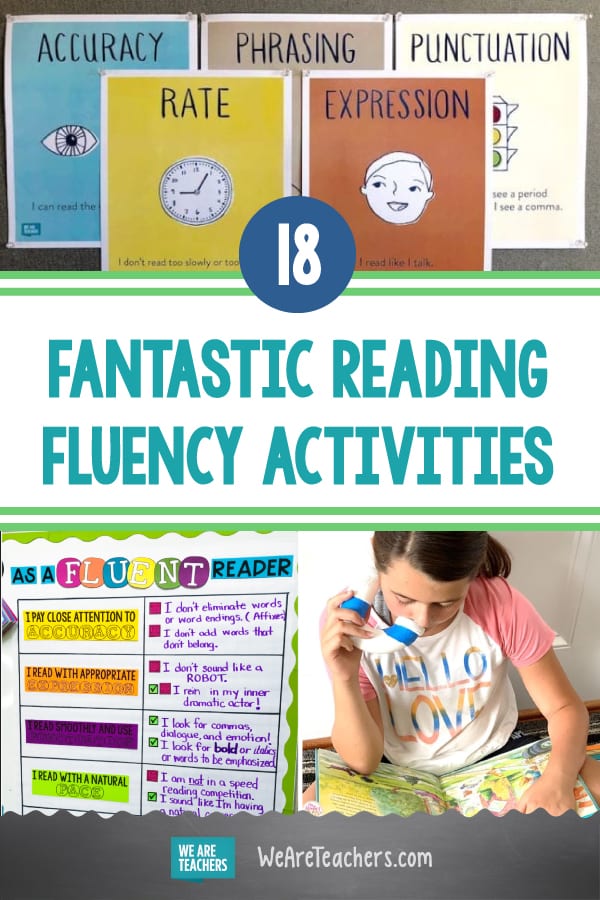
thompsonwhencer2002.blogspot.com
Source: https://www.weareteachers.com/reading-fluency-activities/
0 Response to "What Reading Practice Should You Do at Home"
Post a Comment